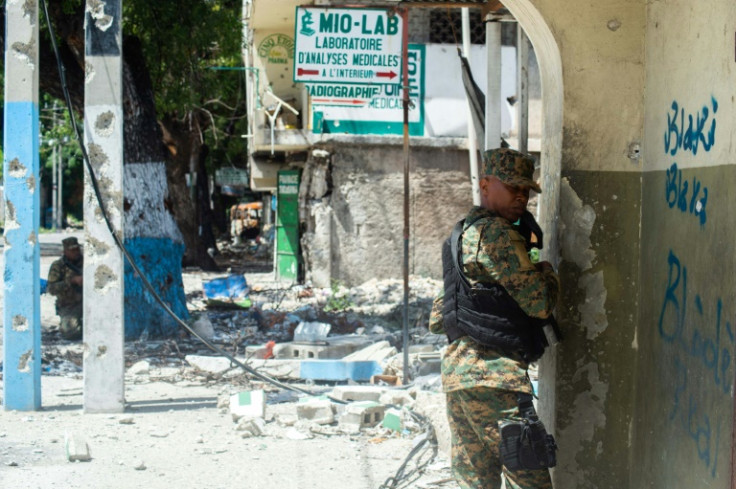
Haiti's transitional government has reportedly reached a deal with U.S. military contractor Erik Prince in order to fight against the gangs that have taken over vast swaths of territory in the country.
The New York Times detailed that the agreement includes the operation of drones to target gang members, a strategy that had already been reported in April. Back then, the Washington Post noted the the effort to deploy weaponized drones, explaining that they are commercial models modified with improvised explosives. Authorities have yet to report a high-profile killing as a result from the strategy.
The NYT added that Prince has also been scouting Haitian American military veterans to hire and send to Port-au-Prince to aid forces there. He expects to send up to 150 mercenaries to the country over the summer and has already shipped a large amount of weapons to the Caribbean country. The State Department told the outlet that it's not paying Prince to operate in the country.
The initiative comes as Haiti faces ever-increasing pressure from gangs and encounters roadblocks in its efforts to combat them. The multinational mission led by Kenya has largely been unable to deliver tangible results, and the Trump administration has signaled that it could be close to cutting aid to the country.
"America cannot continue shouldering such a significant burden," said Dorothy Camille Shea, interim chargé d'affaires at the U.S. mission at the UN. Shea then requested other countries to increase their support for the Caribbean country, going through a deep crisis that has no perspective of improving.
"America cannot continue shouldering such a significant burden," she said. Shea then requested other countries to increase their support for the Caribbean country, going through a deep crisis that has no perspective of improving.
More recently, Secretary of State Marco Rubio suggested the Organization of American States (OAS) could provide a "force" to battle against gangs. Speaking before the Senate Foreign Relations Committee, Rubio acknowledged that Port-au-Prince is mostly controlled by gangs and the multi-national mission led by Kenya and backed by the U.S. is struggling to defeat them.
Rubio mentioned the regional organization, saying that "if ever there was a regional crisis that you would think an organization like this could step forward and provide a force or a group of countries that, working together, could help solve it, it would be the OAS."
Rubio went on to say the Trump administration is "prepared to play a leading role" should the OAS decide to take action in the country, "but we do need buy-in from other partners in the region who are as affected, if not more so, by what's happening there."
The Miami Herald quoted sources saying the OAS option was not on the table, but Rubio discussed it publicly at the hearing, saying "We have a catastrophe in our own hemisphere right now in Haiti that we are seeking to come up with an alternative strategy, because the one in place right now isn't working and Haiti is headed in a very bad direction very quickly."
Democrats retorted that Rubio is spearheading cuts to 83% of the U.S.'s foreign aid budget, but the Secretary of State claimed he was "not saying (the OAS) is one of the ones we're going to walk away from."
The U.S. has to decide by June 1 whether it will provide the funds to continue the multi-national operation through March 2026. The outlet noted that member states have not shown interest in contributing to the cause with financial aid. No Latin America countries have provided funding to support the Kenya-led mission.
© 2025 Latin Times. All rights reserved. Do not reproduce without permission.





